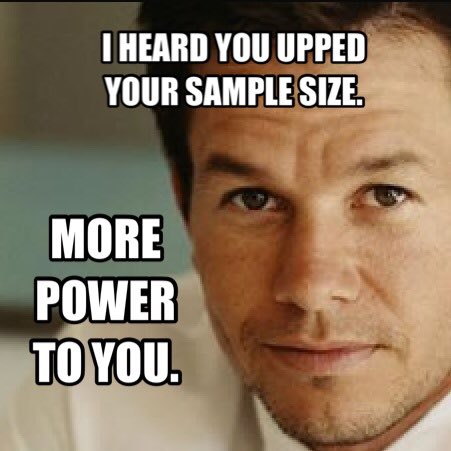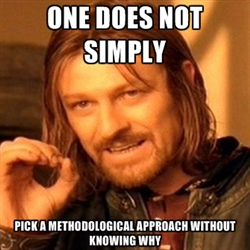My main PhD task last term was to write what is loosely termed ‘a methods chapter’. This I accomplished notwithstanding my tardiness, lack of training for the Cambridge Half Marathon, the Beast from the East, a basketball injury (middle and ring fingers, right hand) and of course the UCU strikes which paralysed my Faculty for the better part of 4 weeks.
In the end, I spent about 75% of my (painfully limited) cognitive bandwidth reading up on paradigms, or that which some people call theoretical/philosophical foundations, before I even got to the nitty-gritty of my actual methods, or the things I will do to gather data and work with my research participants. This blog-post is me making sense of this whole stage of research, and in the process I hope to offer two things: 1) a layperson’s defense of the importance of philosophical thinking in education research and 2) a basic description of my current philosophical position: critical realism.

First, some context. ‘Research methods’ refer to the ways in which researchers collect/gather/solicit and analyse data about the thing or, more often in education, persons, groups, communities and social relations they’re studying. In social research, there are loads of different types of methods, but most of us have probably filled out a questionnaire or participated in an interview at least once before — that’s fairly standard in our day and age. The questionnaire (survey) or interview are examples of the (imperfect) ways we can collect data to answer our questions about educational phenomena. I recall that as an undergraduate in UTAR, I, being the ‘lazy bugger’ (excuse my Malaysian) that I still sort of am, studiously avoided conducting any empirical projects (to this day I don’t know how I managed, or how I thought that was wise). With that said, I recall having to fill out survey after survey designed by my friends (because besides being lazy I am also nice).
It was pretty common back then to think of research as just employing whichever of these methods we felt were appropriate, analysing them (most often using descriptive statistics, and then using the numbers churned out to make conclusion the social realities in question. There will be, if the researchers are slightly more discerning, some consideration of sample size, of the limitations to generalizability and the broader questions of validity and reliability, but that’s it. And I think, at least to the everyday Malaysian, that’s how we think of social research.

Thanks, Mark Wahlberg. I am still trying to make sense of your character’s appearance on the later installments of the Transformers franchise. But anyway, let’s a step back from the methods here and think about what Boromir has to say.

I think that it’s really important not to jump straight into methods without having a good think about philosophical positions. One of the end results of the PhD is to eventually make knowledge claims, but all knowledge claims are based on fundamental assumptions about the nature of the thing or the ‘reality’ (ontology) that you’re studying, and, separately, how you can go about knowing that thing (epistemology). Ontology, epistemology have to line up with the other aspects of your research.
A blogger that does a superior job of explaining this in a really accessible way is Salma Patel, whom I’m putting up right here. To further entice you to read her post, here’s a neat image she adapted from secondary sources and put up on her blog:

In a word, it’s all about coherence — if you’re not aware of your assumptions or not making them explicit, then you risk having egg on your face when there is a lack of fit between the way you analyse your data and the kind of data it actually is, or between the methods you use and the kind of conclusions you draw from them. It’s like cooking eggs in a microwave (which I think is a travesty), expecting rendang to be crispy (which is an outrage) and expecting Malaysians to be on time for a social gathering (which is just plain silly). Pat Thomson, one of the ultimate UK-based education research bloggers, uses clear examples to show the implications of this kind of incoherence here. She gets deep pretty fast, so beware.
So all in all, I found it quite satisfying to engage with philosophical arguments and try to decide between the paradigms. As I said to a friend during the term, ‘I think what this type of thinking does is to make us clearer about what we can know, why we say we know the things we do, and to come up with a coherent, philosophical justifications that can underpin and enhance our research design.‘ Did I just quote my own Whatsapp message? Yes.
Since the start of the year, I have come to see myself as a critical realist. Basically, critical realism is a position that says that there is a real world ‘out there’ (ontological realism) but how we can know about it is socially located and transitive (epistemological transitivity/relativity). Some say it occupies a middle ground between positivism (there is a real world and all we can know about it is what we derive from what we can see, favouring quantitative methods) and interpretivism (social reality is socially constructed, not something ‘out there’ but constructed/interpreted through language, etc., favouring qualitative methods), but I think the term ‘middle ground’ is an unfair metaphor — critical realism exists on an entirely different plane altogether.
Now since critical realism is a relatively unknown (though in my opinion, philosophically robust) paradigm, my next blog-post will explain what it means to me, in lay terms, and then sketching out some basic things about how it affects my research. For a more heavy-duty blog on CR, UCL’s Rob Gratton does a three-part series on it here with an emphasis on educational research. For a comprehensive introduction to the metatheory, Stanford’s Philip Gorksi (2013) gives a robust and well-argued overview, all in an impressive 13 pages (reference below).
Until next time, keep it real!
References:
Gorski, P. S. (2013). What is Critical Realism? And Why Should You Care? Contemporary Sociology: A Journal of Reviews, 42(5), 658–670. https://doi.org/10.1177/0094306113499533